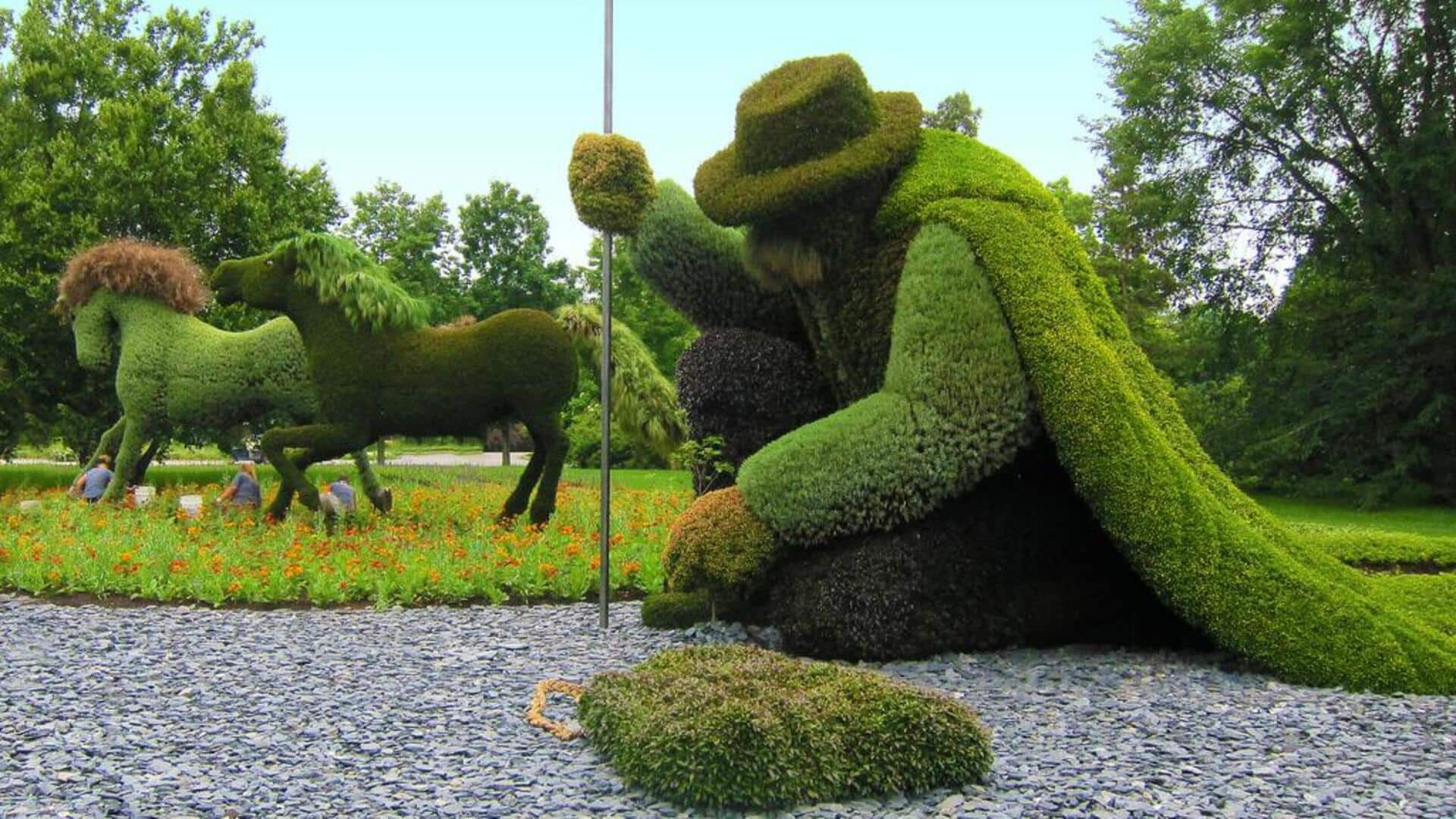
Celebrating African eco-sculpture garden creators unveiled
What's the story
Eco-sculpture gardens in Africa are the perfect blend of artistic expression and environmental conservation. These gardens highlight the talent of African artists while raising awareness about the importance of protecting our planet. By using recycled materials and focusing on nature-inspired themes, these artists create beautiful sculptures that not only captivate visitors but also educate them about sustainability and the importance of caring for the environment.
Trailblazers
Pioneers of eco-sculpture in Africa
Africa's shift toward eco-sculpture gardens has been driven by visionary artists who recognize the potential in reusing materials and raising awareness about ecological concerns. One such pioneer is Ghana's El Anatsui, whose large-scale installations created from recycled materials have garnered global recognition. These artists not only create stunning works of art but also provoke thought, urging viewers to rethink their relationship with the environment.
Materials
The art of recycling
A defining characteristic of eco-sculpture is the creative use of recycled materials. Artists gather things like plastic bottles, metal scraps, and old wood to construct their sculptures. This not only minimizes waste but also infuses the artwork with a deeper sense of purpose. Each piece becomes a testament to the transformative journey from trash to treasure.
Awareness
Educational impact
Eco-sculpture gardens serve as powerful educational tools, raising awareness about crucial environmental issues such as pollution, deforestation, and climate change. By blending art with nature, these spaces offer a unique platform for learning and reflection. Visitors are able to grasp the profound impact of human activity on our planet, often leaving inspired to pursue more sustainable lifestyle choices.
Involvement
Community engagement
They actively encourage community participation, hosting workshops, clean-up drives, and even collaborative art projects for people to get involved. This hands-on approach helps cultivate a sense of ownership and pride among residents for their eco-sculpture garden. It's a brilliant way to raise environmental awareness while fostering cultural expression and unity.
Sustainability
Future directions
In the future, Africa's eco-sculpture gardens are poised to become global pioneers in sustainable artistic practices. With the world trending toward eco-conscious lifestyles, these trailblazing creators hold the potential to cultivate a new wave of artists and environmentalists. The growth of this movement will undoubtedly enrich both the art world and the quest for a greener planet.